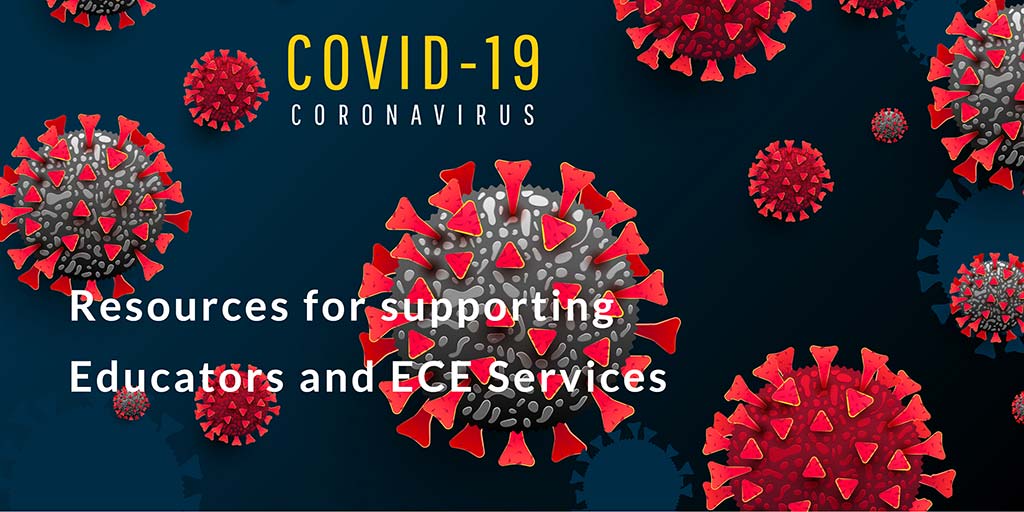Promotion of child health and safety standards are not only important but critical for successful early learning and child care
Child Health, Safety and the Environment
Parents and educators want the best for children, but we don’t always know where the dangers lie or what we can do to protect them. The environments in which young children learn, play, and grow contribute in crucial ways to children’s lifelong health trajectories. Providing all children in Canada with an equal opportunity to learn and play in safe, healthy, and sustainable child care environments is a necessary and attainable step. Check out the resources here to find out how you can make an impact in the lives of the children and families.

CHILD HEALTH AND SAFETY Articles

Building Resilience: Constructing ECE Knowledge of Trauma-Informed Practice in Early Learning Settings
Read about Mothercraft College of Early Childhood Education and their project team’s determination to build the resilience of infants, young children and ECEs.

Download the Plan: Providing Healthy Sustainable Child Care Environments
Our sector and child care and early learning stakeholders have created a vision to ensure that all children in Canada have the opportunity to thrive in child care settings that are healthy and sustainable. Download the plan.

Free Event: Providing Healthy Sustainable Child Care Environments
Join the CCCF & CPCHE for a free webinar on providing healthy sustainable child care environments. This webinar will focus on indoor air quality and how to stay healthy during the COVID-19 pandemic.

Beyond COVID 19 Webinar – Supporting Children, Families & Staff: Reintegrating to the New Normal
This webinar took place in June 2021. Participants learned to view their own stress levels and find ways to build resilience. It will also help you identify the impact of this stress on a child’s behaviour.

Handwashing: the best prevention for colds and flu
Washing your hands and your kids’ hands is the best way to stop the spread of germs

Physical Punishment – It’s Harmful and It Doesn’t Work
The misgivings many parents feel around administering physical punishment are well founded. Research shows that not only does physical punishment not work, it can have detrimental effects on a child’s healthy development.
Children’s Environmental Health Resources
The Canadian Child Care Federation is proud to be a founding partner of the Canadian Partnership for Children’s Health and the Environment (CPCHE). Together we have developed numerous resources that translate the most recent research into accessible resources for parents and practitioners.
Healthy and Sustainable Child Care Checklist
https://healthyenvironmentforkids.ca/healthy-and-sustainable-child-care-checklist/
This user-friendly checklist is designed to assist child care practitioners and public health inspectors in identifying practical steps to reduce children’s exposures to toxic chemicals and pollutants in various indoor and outdoor child care settings.
Who is the checklist for and how can it be used?
Early Childhood Educators and providers may wish to use the checklist to learn about ways to enhance environmental health and sustainability, and to better understand where their child care program is doing well and where there are opportunities for improvement. They can also complete the checklist to earn Professional Development credits (see below). Child care administrators and directors may wish to use the checklist together with staff as an assessment and planning tool, and as a way to track and report on progress over time (e.g., sharing results with board members, communities and families). Public Health Inspectors may use it with child care programs during routine visits, as an additional resource to discuss environmental health concepts and suggest possible actions. Parents and guardians may wish to use it as a basis for engaging in a dialogue with their local child care program about health and sustainability. However you engage with this resource, we applaud your efforts.
Getting your Professional Development Certificate
Upon completion of the checklist, the Canadian Child Care Federation will provide a one-hour Professional Development certificate. A certificate will be auto generated upon completion and sent to the email address you have provided.
Additional resources https://healthyenvironmentforkids.ca/resources/
Free Environmental Health Webinars
Click on the links below to access our recent webinars. Note professional development certificates are only available if you viewed the live webinar presentation.
Healthy and Sustainable Child Care Environments: CPCHE/CCCF Webinar for Child Care Professionals
https://healthyenvironmentforkids.ca/2024/02/08/healthy-and-sustainable-child-care-environments/
CCCF is proud to partner with CPCHE to provide this webinar, developed especially for Child Care Professionals. This webinar will address environmental health and sustainability in child care settings. Viewers will come away with practical knowledge of low-cost ways to create healthier indoor and outdoor spaces in child care programs, drawing on CPCHE’s Child Care Checklist and Top 5 Tips for creating healthier environments.
Environnements de garde d’enfants sains et durables : Webinaire CPCHE/CCCF pour les professionnels de la garde d’enfants
https://healthyenvironmentforkids.ca/2024/02/15/milieux-de-garde-a-lenfance-sains-et-durables/
La CCCF est fière de s’associer au CPCHE pour offrir ce webinaire, développé spécialement pour les professionnels de la garde d’enfants. Ce webinaire portera sur la santé environnementale et la durabilité dans les milieux de garde d’enfants. Les téléspectateurs repartiront avec des connaissances pratiques sur les moyens peu coûteux de créer des espaces intérieurs et extérieurs plus sains dans les programmes de garde d’enfants, en s’appuyant sur la liste de contrôle pour la garde d’enfants et les 5 meilleurs conseils du CPCHE pour créer des environnements plus sains.
Creating Healthy & Sustainable Home Child Care Environments Webinar
https://www.youtube.com/watch?v=1A6FsTgJFwA
CCCF is proud to partner with CPCHE to provide this webinar, developed especially for Home Child Care Providers! This webinar will specifically address environmental health and sustainability in home-based child care settings. Viewers will come away with practical knowledge of low-cost ways to create healthier indoor and outdoor spaces in home-based programs, drawing on CPCHE’s Child Care Checklist and Top 5 Tips for creating healthier home environments.
La santé environnementale et la durabilité dans services de garde à domicile
Découvrez des moyens pratiques et peu coûteux de réduire l’exposition quotidienne aux produits chimiques toxiques et de créer des environnements intérieurs et extérieurs plus sains pour les enfants et le personnel. Erica Phipps et Lyne Soramaki, expertes en santé environnementale des enfants, fourniront des conseils essentiels et des informations pratiques dans ce webinaire en direct d’une heure que vous pourrez utiliser dans votre pratique quotidienne.
Creating Healthy and Sustainable Home-based Child Care Environments: CPCHE/CCCF Webinar for Child Care Professionals [Punjabi]
ਬੱਚਿਆਂ ਲਈ ਇੱਕ ਸਿਹਤਮੰਦ ਅਤੇ ਟਿਕਾਊ ਘਰੇਲੂ ਦੇਖਭਾਲ ਵਾਤਾਵਰਣ ਬਣਾਉਣਾ
Creating Healthy and Sustainable Home-based Child Care Environments: CPCHE/CCCF Webinar for Child Care Professionals [Tagalog]
Kapaligiran sa Pangangalaga ng BatasaTahanan
Enjoy Some Of Our Past Content On Child Health and Safety
- Child Safety Protecting Children against sexual abuse
These guidelines will help parents and educators teach children how to stay safe. Download the copy here - Fire Safety
It’s important to know what you are going to do when that smoke alarm goes off. You may have less than two minutes to escape before smoke creates life-threatening conditions. Download the copy here







